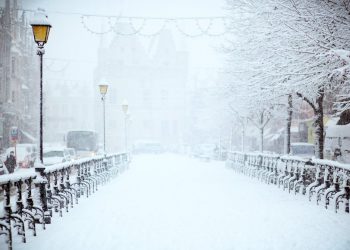[elementor-template id=”3753″]
This is dummy title and will be replaced with real title of your post
Image with size : 1140×570
Image: unsplash.com
Heavy snowfall has disrupted traffic in Greece and Turkey, and more snow is forecast to fall in the coming days.
Istanbul International Airport, which is expected to be Europe’s busiest airport in 2021, announced on Monday that all operations will be suspended until midnight.
The general management of Turkey’s civil airports warned on Twitter that “extraordinary conditions” and strong winds had restricted runway visibility.
Turkish Airlines has also decided to cancel all flights to and from Istanbul Airport until 4:00 a.m. on Tuesday, citing “passengers’ safety.”
At the main international airport, one of the airline’s cargo terminals collapsed under the weight of snow, according to a representative. There have been no recorded casualties.
Despite multiple reported delays, Istanbul’s Sabiha Gökçen Airport was open for business on Monday.
As a result of a cold spell with temperatures as low as -14 degrees Celsius, snow has blanketed much of Greece, as far south as the island of Crete.
On Monday, a number of Greek schools and the parliament were closed, while the metro route to the country’s largest airport was interrupted.
Meteorologists have warned national media that the weather in Athens hasn’t been this bad since 1968, according to meteorologists.
Snow occurred on numerous Greek islands in the Aegean Sea, isolating several mountain communities on Andros, Naxos, and Tinos, as well as covering the beaches of Mykonos.
Heavy snowfall also fell north of Athens on the island of Evia, which was destroyed by flames last summer. While many villages were without power, local governments redoubled their efforts to keep the main roadways open.
Temperatures below freezing are anticipated to keep the snowfall going on Tuesday, according to civil protection officials.
Source: euronews.com
Related Posts
edit post

Updates
Heavy snowfall stops flights at major airports in Greece and Turkey due to “exceptional conditions”
edit post

Updates
According to WHO, Europe may be approaching a “pandemic endgame”
edit post

Immigration
To fill workforce gaps, Australia offers visa rebates to students
edit post

#XpathNEXUS
Xpath Nexus – Pains and gains of global mobility tech
edit post

Immigration
How much does a digital nomad have to earn to work remotely in Romania?
edit post

Taxation
